
An Answer for Menashe
Aaron's Litvish learning partner challenged him: "Where in the Torah does it say that here's a mitzvah to be happy? How can Rebbe Nachman say such a thing?

I want to tell you about my friend Menashe. Menashe and I are good pals from our yeshiva days. We love to talk Torah together- in spite of the fact that we disagree a lot. Actually, perhaps that’s part of why we enjoy it so much.
I have always been drawn mostly towards the Chassidic Torah tradition. Menashe is really in love with the Litvish (Lithuanian) Torah tradition. Tell Menashe a Chassidic story and if anything seems inconsistent, incongruent, illogical, or unrealistic – he’ll point it out. Menashe doesn’t take anything at face value; he asks poignant questions and digs deeper in search of the essential truth.
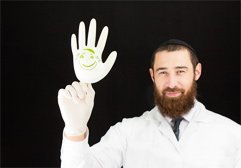 Thanks to one of Menashe’s challenges I was forced to explore, and realize a deeper truth of, one of Rebbe Nachman’s best known quotes.
Thanks to one of Menashe’s challenges I was forced to explore, and realize a deeper truth of, one of Rebbe Nachman’s best known quotes.
Menashe Stumped Me
“Out of all of the 613 mitzvot in the Torah there is not one that says to always be happy,” Menashe challenged, “Why does Rabbi Nachman say it’s a great mitzvah to always be happy?”
Menashe had me stumped, (which has happened more often that I would like to admit). I had no answer for him. Out of all the myriad times I had sung Rebbe Nachman’s epic words, “It’s a great mitzvah to always be happy,” I had never questioned what they really meant.
Where The Torah Says To Be Happy
The Torah warns of the impending punishments due for not serving Hashem joyously, “Because you didn’t serve Hashem with joy and a good heart.” (Deuteronomy 28:47). In other words, happiness is a prerequisite to serving Hashem. However, that doesn’t mean happiness is a mitzvah in and of itself.
And there is also a mitzvah to be happy on Jewish holidays, but Rebbe Nachman specifically said it’s a mitzvah to always be happy, even on regular days, not just on holidays. So what did he mean?
Menashe was right, not one of the 613 Torah commandments says to be happy always explicitly.
In the Psalms, King David says to “Serve Hashem with joy.” (Psalms 100) That wouldn’t be considered a Torah mitzvah, of the 613 kind, but perhaps that’s what Rebbe Nachman meant. A commandment from King David is nothing to sneeze at after all. Still, I wasn’t willing to make that assumption, and from the context the verse seems to be referring to the pilgrimage festivals anyway. So I told Menashe that, as with many great sages, Rebbe Nachman’s teachings require toil, life experience, and prayer in order to truly understand them.
Why did Rabbi Nachman have to use such questionable wording? Why did he call happiness a mitzvah? Had Rabbi Nachman just said that happiness is important, Menashe couldn’t have stumped me.
I tucked the question into the back of my mind hoping someday, to uncover the shrouded mystery of Rebbe Nachman’s cryptic words.
To Rebbe Nachman, Happiness is Something Much More
Everyone knows that happiness is important. Some will say that it is a means to an end, some consider it a valuable commodity, or even a luxury, and for some it is their supreme goal in life (as the people of one nation believed in Rabbi Nachman’s story, the “Master of Prayer”), but everyone values happiness.
However, to Rebbe Nachman happiness is something else entirely. To Rebbe Nachman, happiness is not just a means to an end, or a goal, or an enjoyable experience. Happiness is a requirement for serving Hashem; and a great, even critical, requirement at that. To do it right, Rebbe Nachman asserts, it must be done at all times.
(Please note: If being happy always is difficult for you, you are not alone. Indeed, Rabbi Nachman said that being happy is the hardest task of all (Advice, Joy 35). Learning to be happy constantly takes a lot of work, and rather than getting discouraged by setbacks, it’s important to celebrate the effort.)
When Rebbe Nachman Said “It’s A Mitzvah To Always Be Happy…”
If you’ve ever been around Breslever Chasidim for any period of time, you’ve probably heard them sing “מצוה גדולה להיות בשמחה תמיד” (“It’s a mitzvah to always be happy”). After singing it so many times myself, it began to take on a meaning all its own, as if those few words were the whole picture.
In lieu of Menashe’s challenge I was behooved to investigate the greater context in which those words appear. In actually, “It’s a mitzvah to always be happy,” is just a small excerpt from an extensive discourse by Rebbe Nachman. Here is how it fits into the context of a little bit more of the original discourse…
“It’s a mitzvah to always be happy. And one is required to employ all his strength, to push away the sadness and melancholy, to be only happy always. That is the [key to] healing all types of sicknesses, because all types of sicknesses occur as a result of sadness and melancholy.” (Likutei Moharan part 2, Torah 24)
The Mitzvah to Protect Your Health
By taking a critical look at Rebbe Nachman’s discourse about “It’s a mitzvah to always be happy,” we see that his main emphasis is not a lofty spirit-seeking one, rather it is health. He speaks about the benefit of happiness “healing all types of sicknesses.” On the flip side, “all types of sicknesses occur as a result of sadness and melancholy.” Judging by the context, the mitzvah to always be happy, is to prevent and heal sicknesses. (It’s worth noting that when Rebbe Nachman discussed the mitzvah to be happy within his discourse, he could have meant a wealth of other things too.)
Indeed there is a Torah mitzvah, of the 613 kind, for one to protect their health.
“Guard yourself and guard your soul very much.” (Deuteronomy 4:9)
The Talmud explains that this verse is a commandment to protect one’s physical body and health. “Guard yourself and guard your soul very much.” (Deuteronomy 4:9) The Torah tells us to protect ourselves, and then emphasizes that by reiterating to do it very much.
Rebbe Nachman’s Huge Assertion
Usually, when we think of keeping healthy we think of doing exercise and keeping a healthy diet. Rebbe Nachman made a huge assertion here. Being happy is critical to one’s health; and judging by the wording, it is probably even more important than having a good diet and regular exercise (although those are obviously important too). Through joy, one not only protects their body, they also help it heal.
Presumably, when Rebbe Nachman said, “It’s a big mitzvah to be happy always,” he meant that the mitzvah of protecting one’s health is interlocked and codependent upon being joyous always.
Had I known this a few years ago, I would have told Menashe the answer to his question right then: “‘It’s a great mitzvah to be happy always’ because there is no other way to do the mitzvah to ‘Guard yourself and guard your soul very much,’ the mitzvah to protect one’s health.”
So Menashe, my friend, after all these years I’ve answered your challenge. And next time I sing Rebbe Nachman’s words I’ll remember that it was you who helped me to understand their meaning a little better; and it is you who has helped me become a more health and happiness conscious person. And Menashe, perhaps, through this article, your question will also help a lot of other people live more healthy, and happy, meaningful, and longer lives G-d willing.
And finally Menashe, maybe someday I’ll be able to answer some of your other stumpers too, but don’t hold your breath.


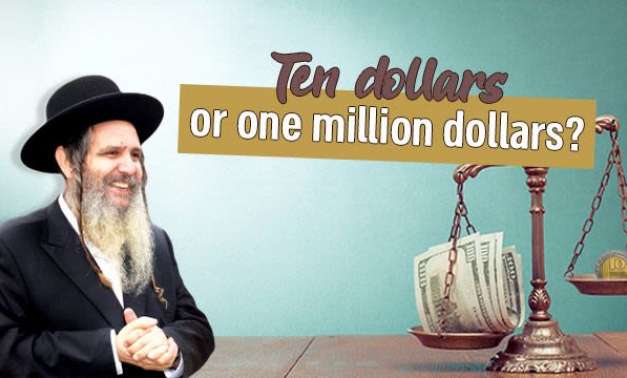




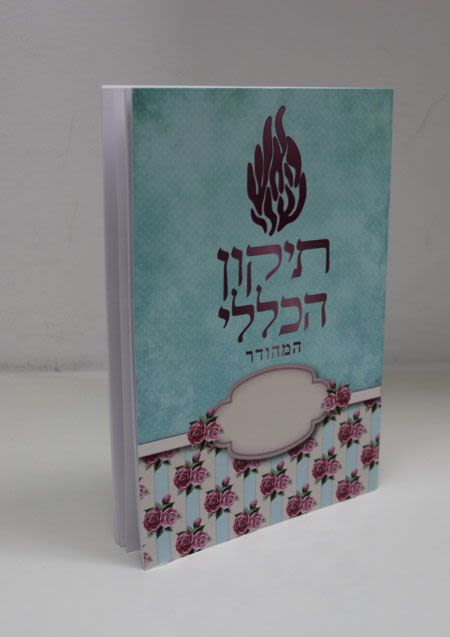
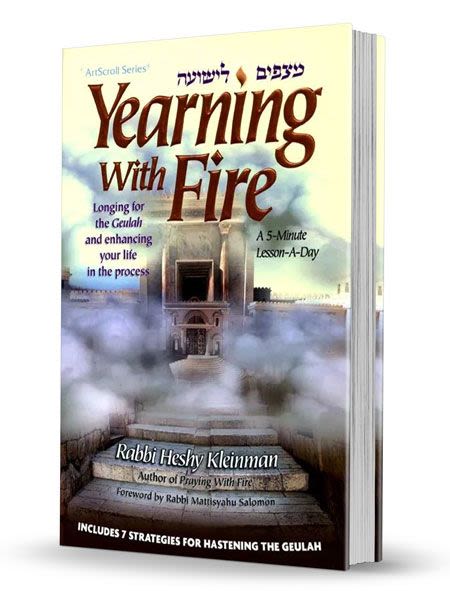
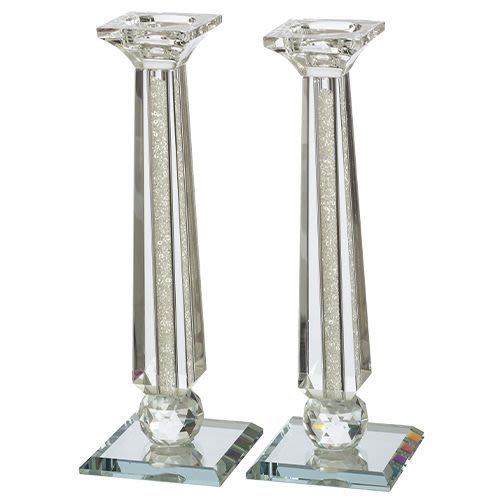
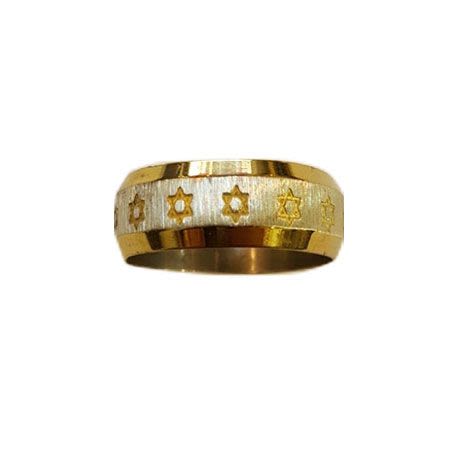

Tell us what you think!
Thank you for your comment!
It will be published after approval by the Editor.